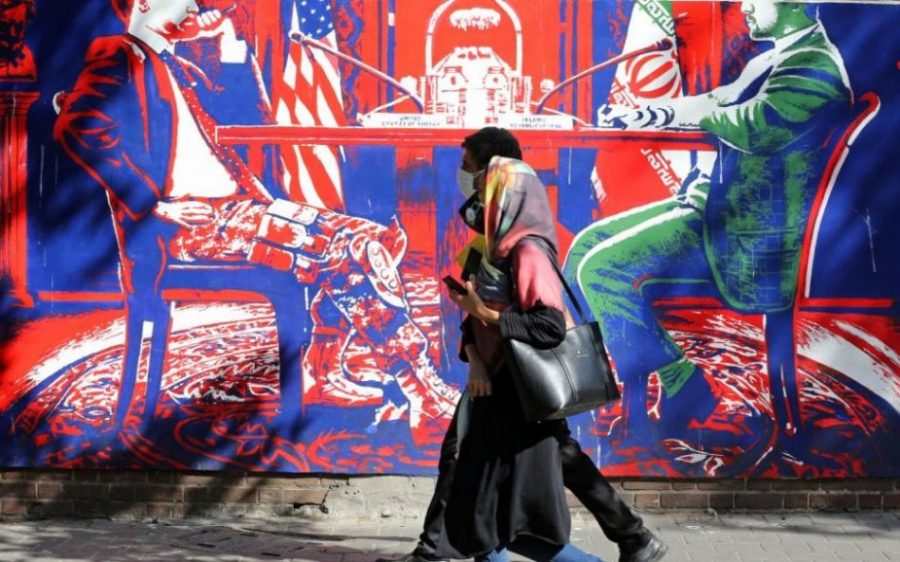Biden has little chance of reviving the Iran nuclear deal

US President-elect Joe Biden has pledged to reverse several of President Donald Trump’s policies that had overturned important decisions made by President Barack Obama, including the nuclear deal with Iran. However, Biden’s declared desire to return to the nuclear agreement with Iran will be extremely difficult to achieve.
The Joint Comprehensive Plan of Action reached in 2015 was hailed as a major breakthrough because it stopped, indeed reversed, the Iranian nuclear program while giving Tehran relief in graduated fashion from stringent economic sanctions imposed upon it by the UN and the US. It mandated that Iran would not enrich uranium beyond 3.67% purity and not stockpile more than 300 kilograms of enriched uranium, and that it would dismantle its Arak nuclear reprocessing facility, ship 98% of its uranium stock abroad, and allow inspectors from the International Atomic Energy Agency to monitor compliance with the provisions of the agreement.
However, in May 2018 Trump unilaterally withdrew the US from the JCPOA and reimposed sanctions, especially on shipment of Iranian oil, to put ‘maximum pressure’ on Tehran to force it to accept America’s maximalist demands that went far beyond the JCPOA. The Trump administration argued that the 15-year time limit on Iran’s nuclear program was insufficient and that Tehran must renounce in perpetuity its right to enrich uranium. Washington also wanted to impose a moratorium on Iran’s ballistic missile program and make Tehran commit to withdrawing its support to forces in the Middle East opposed to US interests.
After waiting a year to see if the European signatories of the JCPOA could persuade Washington to return to the agreement, Iran decided in May 2019 to breach the limit for uranium enrichment. It also began increasing its stockpile of enriched uranium beyond the amount allowed under the agreement. Finally, in January 2020, Tehran announced that it ‘no longer faces any operational restrictions, including enrichment capacity, percentage of enrichment, amount of enriched material, and research and development’.
In a confidential document sent to members last week, the IAEA stated that, as of 2 November, Iran’s stockpile of low-enriched uranium had reached more than 2,442 kilograms, eight times the limit permitted by the JCPOA. The New York Times reported that, at a meeting the day after the IAEA report came out, Trump contemplated launching air strikes against the Natanz enrichment facility. His senior advisers, including Secretary of State Mike Pompeo and General Mark A. Milley, the chairman of the Joint Chiefs of Staff, dissuaded him, arguing that such an attack could lead to a major conflagration in the Middle East during his last weeks in office. However, given Trump’s mercurial and vindictive nature one can’t be certain that he won’t order an attack to preclude his successor’s attempt to improve US relations with Tehran.
Even if Trump doesn’t engage in such a reckless move, President Biden will find it very hard to revive the JCPOA because opinions in both Washington and Tehran have hardened over the past two years. The consensus in the US has shifted to a much more uncompromising position because of Iran’s refusal to change the course of its Middle East policy. Iran’s Islamic Revolutionary Guard Corps has trained proxy militias that have played a major role in helping the Assad regime in Syria to turn the tide of war against US-supported opposition forces. Tehran continues to finance and arm Lebanese Hezbollah and is the principal supporter of the Houthis in Yemen who have not only fought American ally Saudi Arabia to a standstill but also attacked major Saudi oil facilities with Iranian-supplied drones and missiles.
At the same time, it’s clear that any attempt by the Biden administration to link the nuclear issue to Iran’s ballistic missile program and its regional policy will be unacceptable to Tehran. The Iranian position is that any talks with the US will be contingent on Washington first returning to the JCPOA without preconditions. Foreign Minister Javad Zarif made it plain in an interview with CBS earlier this month that ‘under no circumstances’ will Iran renegotiate the nuclear deal with a future American administration.
The US decision to unilaterally withdraw from the JCPOA has played into the hands of the Iranian hardliners and discredited those like Zarif and President Hassan Rouhani who had argued in favour of the JCPOA and by implication improved relations with the US. The Rouhani government signed the JCPOA in 2015 with the reluctant endorsement of Iran’s supreme leader, Ayatollah Ali Khamenei. Khamenei has changed his mind in light of Iran’s experience with the Trump administration and returned to his earlier position that no American administration can be trusted because all that Washington is interested in is regime change in Tehran.
Furthermore, Rouhani is a lame duck president. Under the Iranian constitution, he cannot run again when elections are held in June 2021 because he has already served two terms. The recent parliamentary elections have resulted in the domination of the Iranian parliament by the hard-line conservative faction known as the ‘principlists’. It’s almost certain that the next president will belong to the same grouping. The general consensus among the political class in Iran is that the new president should handle any negotiations with the US. Once bitten twice shy, the new Iranian dispensation can be expected to drive a much harder bargain. It is unlikely to accept a simple return to the original JCPOA. It will most probably insist on a foolproof clause that will preclude a repetition of the US’s unilateral withdrawal.
The internal political dynamics in the US and in Iran will make it almost impossible for Biden to revive the JCPOA. It is unfortunate that the positive momentum created by the nuclear agreement was seriously undermined by the unilateral American withdrawal. In all probability, US–Iran relations will be mired in hostility well into the future and continue contributing to instability and insecurity in the Middle East.